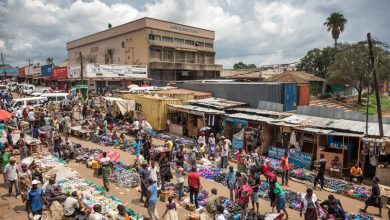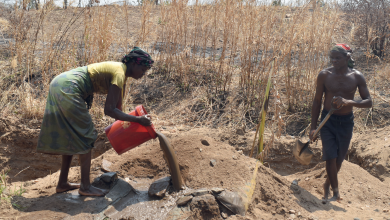Bua River Basin gets $8.9m boost
Travelling between Chinkhoma Trading Centre in Kasungu District and Kamwendo in Mchinji, numerous farmers can be seen growing winter crops too close to rivers in a desperate attempt to overcome hunger worsened by crop failure due to erratic rains.
On the roadsides, the riverside crop fields flash past, a push for resilience as climate shocks abound, especially prolonged drought and flooding.
“With crops scorched by dry spells early in the rainy season, there is no time to rest. If you doze off, your family will starve,” says Martin Mwale, who grows maize and beans along the fertile banks of Bua River, which split the Lilongwe-Kasungu Plain on the way from Mchinji to Nkhotakota along Lake Malawi.
However, the fast-expanding fields located too close to the riverbanks do not only mirror the desperate survival strategies as rain become unpredictable disasters become more frequent and devastating amid climate change.
They expose shrinking forests and loose soils that bury rivers in silt, making them shallow, undefined and prone to flooding with minimal rains.
This illustrates how unsustainable environmental management ruin the livelihoods and survival of poor Malawians amid climate change.
Malawi has secured $8.9 million from the Global Environment Facility (GEF) to strengthen community resilience to climate change.
The grant for the new adaptation project is part of GEF’s Least Developed Countries Fund.
Under the project, code-named Clap for Resilience, the Department of Environmental Affairs, with technical support from the United Nations Development Programme (UNDP), will champion local adaptation for productive ecosystems and enhanced resilience.

The six-year initiative focuses on the Bua River Basin in Mchinji, Kasungu and Nkhotakota.
It will benefit 28 vulnerable rural communities, which heavily rely on rain-fed agriculture and natural ecosystems endangered by climate change, deforestation, land degradation and biodiversity loss.
According to the brains behind the project, women, the youth and other marginalised groups whose livelihoods are most at risk.
“This project reflects Malawi’s continued commitment to enhancing climate resilience and sustainable development,” says Ministry of Natural Resources and Climate Change principal secretary Yusuf Nkungula.
“By working with communities, the private sector and development partners, we are laying the foundation for a climate-resilient future in the Bua River Basin.”
He says the integrated, watershed-based approach will combines ecosystem restoration, climate-resilient agriculture, inclusive local governance and private sector engagement.
It aims to strengthen gender-responsive grassroots efforts for climate change adaptation, promote climate-smart and nature-based agricultural practices, encourage private sector investment in economic value chains and climate-resilient livelihoods and develop participatory planning and knowledge management systems that support sustainability.
A UNDP statement shows that the project will help tackle barriers that restrict communities’ ability to adapt, ensuring vulnerable populations can thrive and withstand changing climate conditions.
The Government of Malawi and other partners will contribute $54.9 million. Among others, UNDP’s core resources total $800 000.
The support to bolster local resilience aligns with Malawi 2063 national development agenda and the global Sustainable Development Goals, says the UN development financing agency.
Says UNDP Resident Representative Fenella Frost: “UNDP is proud to continue its long-standing partnership with the Government of Malawi.
“We remain dedicated to helping the government secure a more prosperous, inclusive, low-carbon future. This includes advancing adaptation, increasing access to renewable energy in remote areas, climate-informed policy development and planning and, ultimately, raising and realising the country’s climate targets under the global Paris Agreement.”
GEF chief executive officer Carlos Manuel Rodríguez says the global climate financing facility is proud to partner with Malawi in advancing locally led solutions that protect vital ecosystems and strengthen livelihoods.
“This collaboration with UNDP exemplifies how targeted investments from the LDC Fund can unlock long-term resilience, foster inclusive development and help communities thrive in the face of mounting environmental pressures,” he says.
The Environmental Affairs Department will work closely with district councils, community-based organisations and the private sector to ensure the project achieve the desired goals.
It will complement ongoing initiatives, including the Malawi Watershed Services Improvement Programme, the Enhanced Climate Smart Public Works Programme and the Growth Accelerator Programme.
By restoring ecosystems, diversifying livelihoods and enabling inclusive governance, Clap for Resilience seeks to reduce community vulnerability to climate shocks and advance sustainable development in most climate-vulnerable regions.
Additional reporting by our Srtaff Writer JAMES CHAVULA





